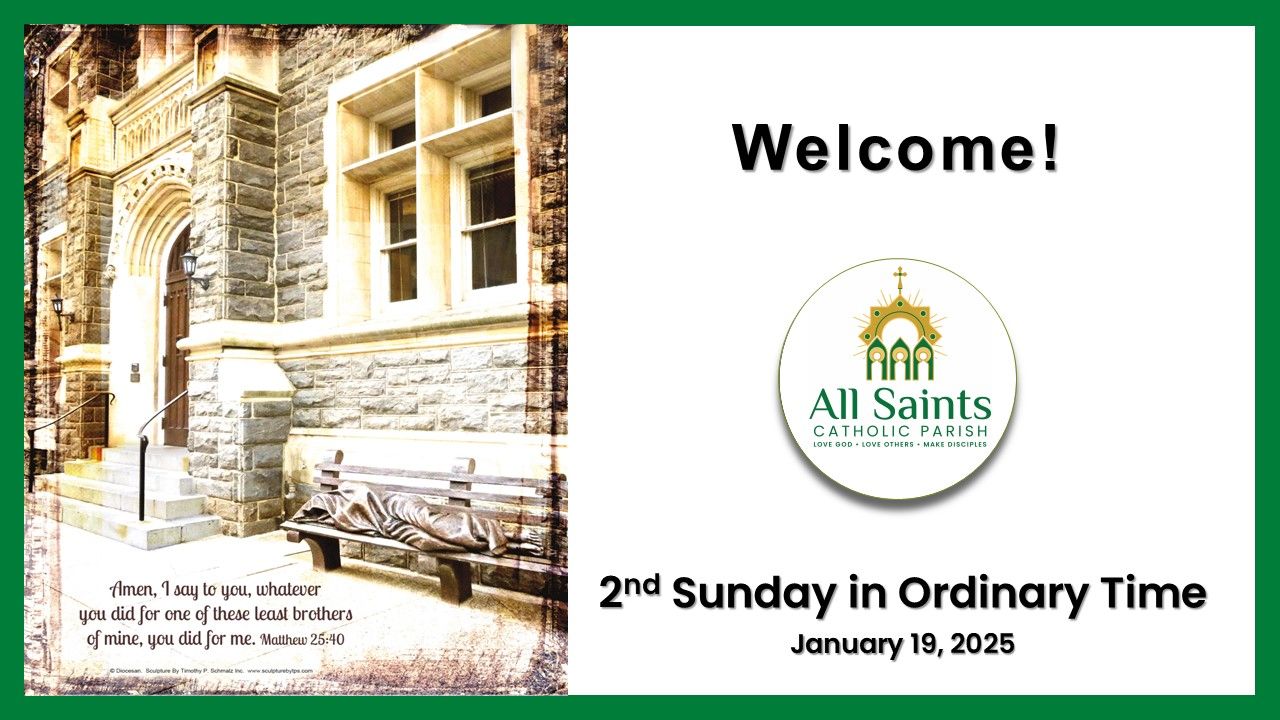Homily-19th Sunday of the Year C
19th Sunday of the Year C
Wis 18:6-9 Heb 11:1--12 Lk 12:35-40
It is often said that life is a journey. Well, this is not a journey like traveling from one point to another on a map. In fact, some people live for quite a while before they even realize that they are on a particular, personal journey. However, the most challenging aspect of our life’s journey is, always, the unknown. We all have hopes, dreams, and aspirations and our plans are made based upon those hopes and dreams.
Probably, the most important plan for each of us is our basic vocation, either to be married and have a family of our own or to be a priest, religious or single person and serve the human family at large. Choosing marriage means finding the right spouse for what will be a mutually shared journey. Serving the human family means discovering a way that suits our talents and abilities. In all of this, there is the unknown and the unforeseen.
No matter who we are, or what direction we take, we cannot know beforehand everything we will face on our particular journey. I vividly recall the anxiety on my day of ordination caused by the fear of the unknown, even though I had been preparing for that day for over eight years!
Consequently, we realistically need both faith and hope. We need faith in ourselves and in whomever we share the journey. We need a well-founded hope – a deep trust – that we will achieve the purpose and final outcome of the journey. What most people never realize is that God is calling us on this journey. God has a plan and a purpose for each of us in the divine scheme of things.
Today’s scriptural readings invite us to trust in God’s ways. The first reading from the book Wisdom recalls the Passover – the last of the ten plagues on the Egyptians and the most destructive of them all. It was the one that finally convinced Pharaoh not only to let God’s people go, but actually to force them out. God’s chosen people had been slaves in Egypt for more than 400 years, each generation saying the same prayer, waiting on God to free them and bring them home. God’s people awaited the salvation of the just and the punishment of their adversaries.
The letter to the Hebrews (our second reading) recalls Abraham’s unwavering faith in God’s promise. The author states that faith is an openness of mind and heart, not merely a set of propositions. He turns to Abraham’s faith to illustrate this. Abraham’s faith showed itself in his willingness to depart from his home and leave his kin, to trust a promise that his descendants would outnumber the stars, and to trust that God will provide even when he was asked to sacrifice the son who guaranteed the promised future. Through all this a covenant was initiated. As we know, those who claim Abraham as their ancestor in faith include Jews, Muslims, and Christians- billions of people!
With Jesus, came a new covenant in his blood, and a call to all his followers. This was to replace any fear people might have with an abiding trust in God to give them the promised kingdom. And Jesus spoke about having a fidelity that would characterize his followers as good servants, good stewards in the household of faith. The hallmarks of this fidelity would be watchfulness for the master’s return, a commitment to guarding treasures of the household and caring for its members. Therefore, dear friends, we are urged to serve God throughout our spiritual journey with steadfastness by doing the best we can in every situation.
Putting our faith in God can seem like walking blindly into the dark—with no assurance that we have heard correctly or that God is there to catch us if we fall. Yet that is what Abraham (our ancestor in faith) did. For his trust, he was accounted righteous. Let us pray for the gift of that same unshakeable faith. Remember, God has a plan for each of us - always present and accompanying us each step of the journey.
Homilies











